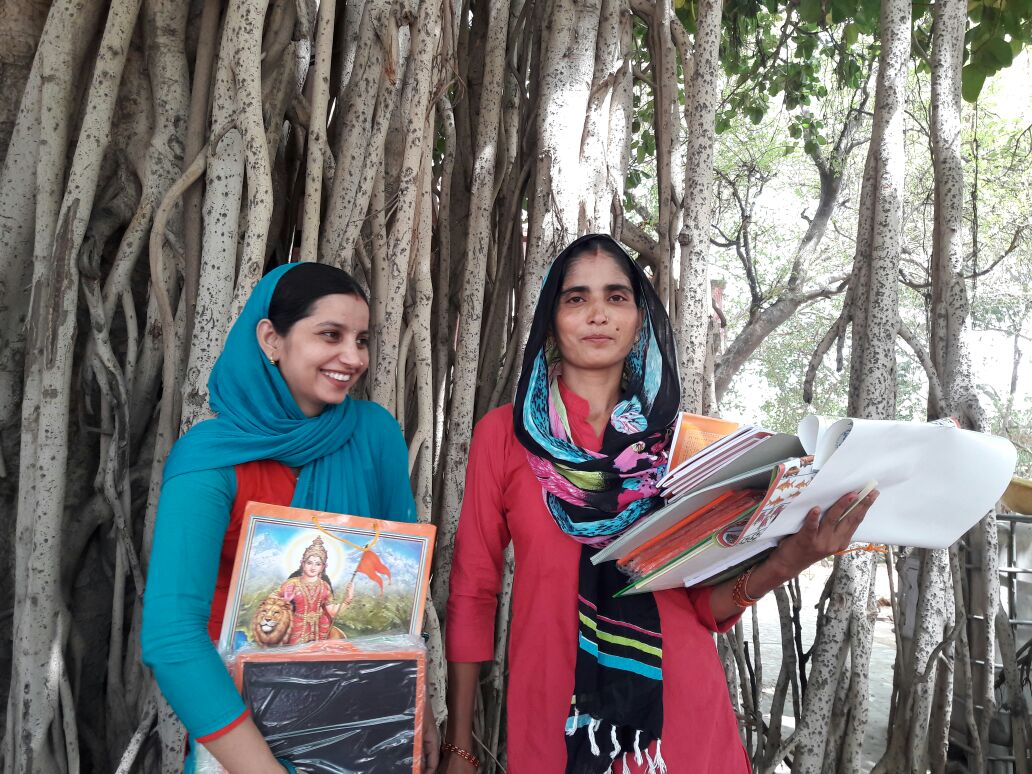Constitutional Provision of Women Reservation:
The 73rd Constitutional Amendment Act provides for the 33% reservation of women in
Panchayati Raj Institutions. It states that-
(1) Seats shall be reserved for-
(a) the Scheduled Castes; and (b) the Scheduled Tribes, in every Panchayat and the number of seats of reserved shall bear, as nearly as may be, the same proportion to the total number of seat to be filled by direct election in that Panchayat as the population of the Scheduled Castes in that Panchayat area or of the Scheduled Tribes in that Panchayat area bears to the total population of that area and such seats may be allotted by rotation to different constituencies in a Panchayat.
(2) Not less than one-third of the total number of seats reserved under clause (1) shall be reserved for women belonging to the Scheduled Castes or the Scheduled Tribes, as the case may be.
(3) Not less than one-third (including the number of seats reserved for women belonging to the Scheduled Castes and the Scheduled Tribes) of the total number of seats to be filled by direct election in every Panchayat shall be reserved for women and such seats may be allotted by rotation to different constituencies in a Panchayat.
(4) The offices of the Chairpersons in the Panchayats at the village or any other level shall be reserved for the Scheduled Castes, the Scheduled Tribes and women in such manner as the Legislature of a State may, by law, provide: Provided that the number of offices of Chairpersons reserved for the Scheduled Castes and the Scheduled Tribes in the Panchayats at each level in any State shall bear, as nearly as may be, the same proportion to the total number of such offices in the Panchayats at each level as the population of the Scheduled Castes in the State or of the Scheduled Tribes in the State bears to the total population of the State: Provided further that not less than one-third of the total number offices of Chairpersons in the Panchayats at each level shall be reserved for women: Provided also that the number of offices reserved under this clause shall be allotted by rotation to different Panchayats at each level. Having passed this amendment, after several rounds of elections more than a million women have entered in the domain of public life. The political empowerment of women at Panchayat level has achieved success at all the three tiers of Panchayati Raj Institutions, overcoming all the barriers of tradition, culture, caste and the class. After having completed the third round of election, some of the states have amended their Panchayats’ Act and provided more than one–third reservation for women and many states now provide 50 per cent reservation for women.
Impact of Participation of Women and Community Development (AC Nielsen ORG-MARG-Study with MOPR)
-
- The positive impact of entering politics and working as PRIs functionary, a sizeable proportion of women representatives receive enhancement in their self-esteem (79%), confidence (81%) and decision-making ability (74%);
-
- The elected women representatives perceived an increase to voice in decisions related to economic matter and other issues in their family (66-71%);
-
- Beyond the household domain, and in the professional environment, an increase in attention from local government (64%), representatives of the Block Panchayat (60%) and recognition from other Panchayat Members (65%) is reported by higher proportion of female Pradhans. No gender discrimination in the panchayat is reported by 60 per cent of the elected women representatives, acceptability in panchayat meetings and enabling them to raise issues freely, was mentioned by 94 percent,
- The supportive professional environment evidently motivates elected women representatives to perform better, as 60-64 per cent reported as increase in their interaction with line departments and parallel bodies. The participation of common women citizens in various activities such as attending Gram Sabha meeting etc. has reportedly increased (68-78%)

